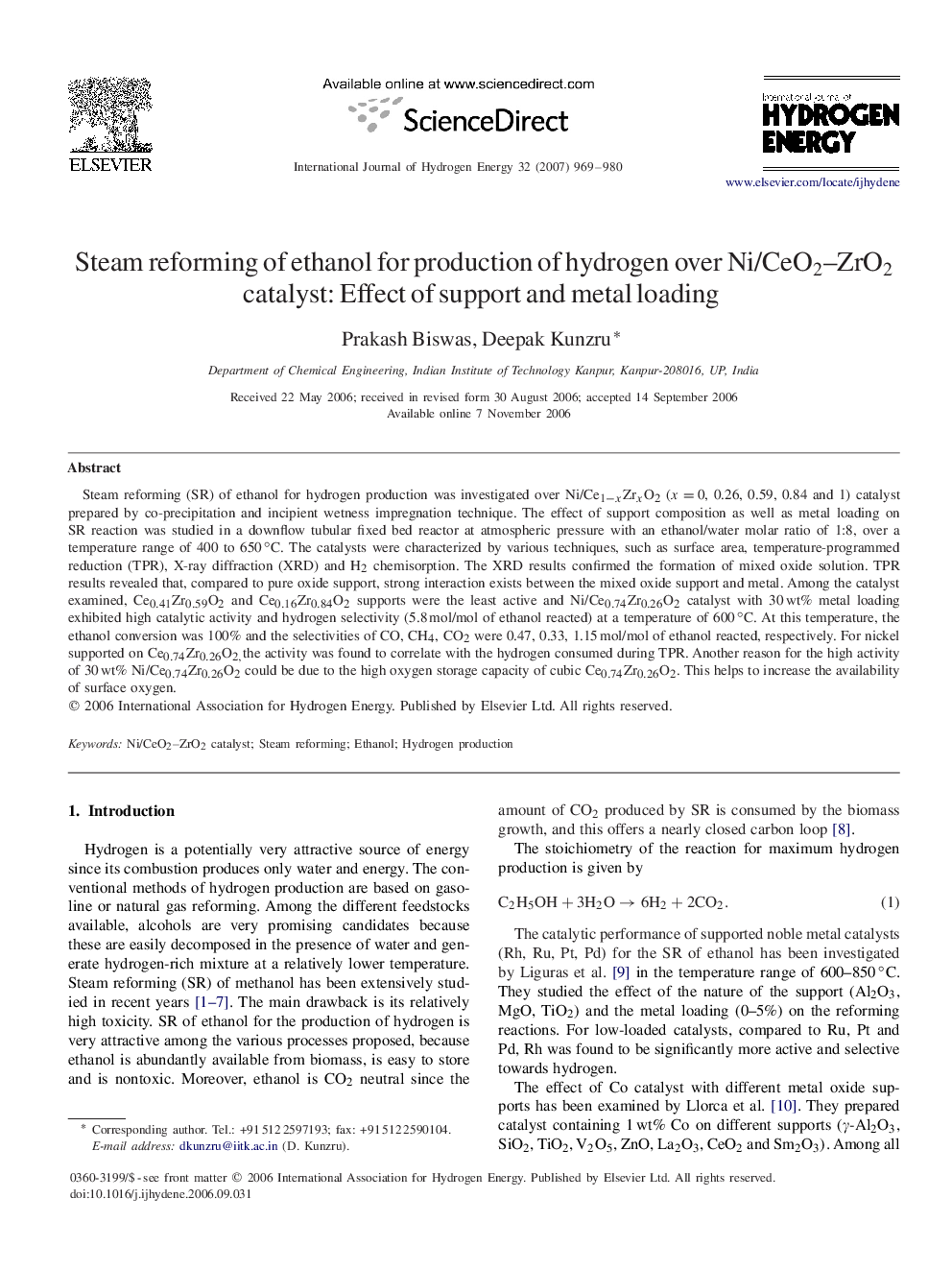| Article ID | Journal | Published Year | Pages | File Type |
|---|---|---|---|---|
| 1280646 | International Journal of Hydrogen Energy | 2007 | 12 Pages |
Steam reforming (SR) of ethanol for hydrogen production was investigated over Ni/Ce1-x1-xZrxxO22 (x=0x=0, 0.26, 0.59, 0.84 and 1) catalyst prepared by co-precipitation and incipient wetness impregnation technique. The effect of support composition as well as metal loading on SR reaction was studied in a downflow tubular fixed bed reactor at atmospheric pressure with an ethanol/water molar ratio of 1:8, over a temperature range of 400 to 650 ∘∘C. The catalysts were characterized by various techniques, such as surface area, temperature-programmed reduction (TPR), X-ray diffraction (XRD) and H22 chemisorption. The XRD results confirmed the formation of mixed oxide solution. TPR results revealed that, compared to pure oxide support, strong interaction exists between the mixed oxide support and metal. Among the catalyst examined, Ce0.410.41Zr0.590.59O22 and Ce0.160.16Zr0.840.84O22 supports were the least active and Ni/Ce0.740.74Zr0.260.26O22 catalyst with 30 wt% metal loading exhibited high catalytic activity and hydrogen selectivity (5.8 mol/mol of ethanol reacted) at a temperature of 600 ∘∘C. At this temperature, the ethanol conversion was 100% and the selectivities of CO, CH44, CO22 were 0.47, 0.33, 1.15 mol/mol of ethanol reacted, respectively. For nickel supported on Ce0.740.74Zr0.260.26O2,2,the activity was found to correlate with the hydrogen consumed during TPR. Another reason for the high activity of 30 wt% Ni/Ce0.740.74Zr0.260.26O22 could be due to the high oxygen storage capacity of cubic Ce0.740.74Zr0.260.26O22. This helps to increase the availability of surface oxygen.
